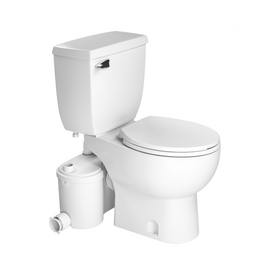
Glamping Sustainably: A Luxe Way to Experience Nature
Last Updated: Apr 13, 2025Glamping, a linguistic blend of the words "glamorous" and "camping," is a new way to experience travel, or as Glamping Hub describes the term, "the activity of camping with some of the comforts and luxuries of home: Imagine glamping in a carpeted tent with a comfy queen-size bed."
Traveling can be tricky when you're trying to stick to your lifestyle. Those "vacation chips" can quickly derail your healthy eating for example. And what about all the effort you've put into making your home more sustainable? Wouldn't it be nice if the accommodations you had while away from home were built to the same values?
Glamping Hub
Some companies, like Glamping Hub, are promoting glamping accommodations touting sustainability, from eco-pods on a sustainable farm in Hawaii, an off-grid cabin in Mexico, and "eco-crafted cabins" in Colorado. Chances are, too, that your "home" in which you're having your glamping adventure was once someone's sustainable home. Those homeowners are most likely your glamping hosts, as well.
We spoke with Glamping Hub about their commitment to sustainability and what their guests are looking for. Jessica Armstrong, Partnerships Manager, Glamping Hub, says that they "continually strive to provide our guests with the exact types of accommodations they're looking for." She added, "right now, our hosts are amazing at putting sustainability at the forefront, so we're thrilled to be providing guests with eco-friendly sustainable tourism."
Here is a closer look at some of some really cool earth (and spirit) friendly glamping options we've found.
Table of Contents
- Camping in a Caboose
- Shipping-Container Wellness Retreat
- Lessons in Sustainability
- What Are Other Global Sustainable Glamping Options?

At Home in the Trees
In 1998, Will Beilharz and his family moved to 88 acres undeveloped ranch land in the Texas hill country. The family lived in a Mongolian yurt, growing their own food and harvesting their own electricity. For Will, sustainability is a way of life, which is why he founded Artistree, a company that builds custom treetop architecture.

Alex Temblador, a freelance travel and culture writer, recently glamped in two different treehouses near Austin located in Spicewood, above a cypress-lined creek on the property. "The Juniper treehouse was charming, a small cozy unit with a great porch," she recalls. The other treehouse "was a super-luxury stay. I loved soaking in the onsen tub while it rained outside. I'd open the windows and enjoy the cool air and the views of the trees."
The single-room tree houses are sited above the cypress-lined creek on the property. Beilharz and his crew designed and built the treehouses with sustainably harvested and local materials. Their building methods are low-impact, and ArtisTree considers environmental, social, and economic impact over the entire lifecycle (from initial extraction to final disposal) when selecting materials.
"I enjoy camping on occasion, but I don't really like the process of setting up the tent and taking it down. With glamping, I can arrive, and there is my unit; set up, ready to go, and well-positioned in nature for me to have a nature-focused experience with a little more comfort."
She adds that "I always try to be sustainable when I travel. With the luxury unit, I was glad there was a refrigerator and a cooking surface so I could cook on-site without having to leave the property and take my truck into town." One of the treehouses had a water tank from which she drew water to fill up her portable water bottle. Solar energy heated the water for the tub and the showers. The luxury treehouse, she adds, "also used sustainable materials like Thermory Drift cladding."

Camping in a Caboose
Theresa Lauria is also a travel writer, whose "approach is wanting to experience new things." She loves trains and history, so Lauria recently stayed in a repurposed, 1919 wooden caboose outside of Springfield, Massachusetts. The caboose included wooden bunks with leather cushions. The site was replete with railroad history and artifacts, with stone arch bridges and a historic quarry nearby.
Lauria also stayed in a home filled with recycled materials and repurposed furnishings at another location nearby. "The owner had acquired things from garage sales, antique stores, and things people had given him," she says. "Everything in the home was repurposed, including old double-hung windows from buildings nearby. We loved the idea behind this glamping site."

Shipping-Container Wellness Retreat
Bri Wesley-Majsiak is a co-founder of The Breasties, "a nonprofit organization that empowers young women affected by breast and reproductive cancers through community and friendship," according to the website. "It's important to us to be as eco-friendly and sustainable as possible," says Wesley-Majsiak. So, for the organization's first wellness retreat in 2019, the team chose the Flophouze in Round Top, Texas, as a sustainable getaway.
"Each of the 25 women on the retreat stayed in various repurposed shipping containers," she explains. "Everything inside was sustainably sourced, like kitchen cabinets from old school science laboratories." The owner, she adds, created the "houzes" as a way of showing how repurposed and salvaged items can enjoy a new life while infusing the shipping-container units with character.
The owner, Matt White, also owns an architectural salvage company. As such, the shipping containers are clad in sustainably harvested wood from his farm in upstate New York and reclaimed lumber from a Kentucky distillery. The windows were salvaged from a school in Philadelphia slated for demolition. The countertops are repurposed bowling alley floors from Texas.
Each container has a unique personality, so it was fun to see the women interact with each one," she says. "We enjoyed learning the stories of each item that made up a container and where everything came from. It created a deep feeling of appreciation for the retreat and space that we were in."

Ecobnb
Based in Italy, Ecobnb is a proponent of traveling "light." They offer many different experiences. From organic farmhouses to treehouses, glamping on the beach, sustainable homes in ancient villages, and zero-emissions wildlife refuges. To qualify, each of their facilities must have at least 5 of 10 sustainability requirements, as seen below. They then assign a "green leaf" rating on a five-point scale to each facility, depending on the number of requirements achieved.
- Organic or Local Food
- Green building
- 100% renewable energy
- Solar thermal panels for hot water
- Energy-saving lights
- Ecological cleaning products
- More than 80% waste recycling
- Car-free accessibility
- Water flow reducers
- Recovery & reuse of rainwater
Ecobnb calculates the CO2 reduction of each implemented sustainability requirement using a website called How Many Trees.
Shop All Special Offers
Shop Special Offers on vetted Home Improvement products at low prices while supplies last.

Stiebel Eltron Accelera 300 E Heat Pump Water Heater
Stiebel Eltron
In Stock

Victory Range Hoods Sunset 600 CFM White Flush Ceiling Mount Dimmable LED Range Hood
Victory Range Hoods
Out of Stock

Victory Range Hoods Sunset 600 CFM Flush Ceiling Mount Dimmable LED Range Hood
Victory Range Hoods
Out of Stock

Stiebel Eltron Accelera 220 E Heat Pump Water Heater
Stiebel Eltron
In Stock

Quickscrews Cabinet Install Screws
Quickscrews
In Stock

Victory Range Hoods Horizon Matte White Flush Ceiling Mount Range Hood with Dimmable LED Lights
Victory Range Hoods
Out of Stock

Saniflo Sanibest Pro Combo Macerator System
Saniflo
In Stock

Blanco PRECIS Super Single Undermount SILGRANIT Kitchen Sink
Blanco
In Stock
9 Colors

Blanco PRECIS 30 Undermount Single Bowl SILGRANIT Kitchen Sink
Blanco
In Stock
9 Colors

Hauslane Chef 36" UC-PS18 860 CFM Ducted Undercabinet Range Hood
Hauslane
In Stock
2 Colors

Qhispikay Sustainable Glamping
Qhispikay is a Sustainable Glamping option in Peru. They focus on joining the traveler with the landscape, history, and culture of the Andes while minimizing the environmental footprint.
When staying at Qhispikay, they "promote cultural exchange between travelers from cities and the Andean people, seeking to make their reality known to the world."
Camille LeFevre
Camille LeFevre is an architecture and design writer based in the Twin Cities.


